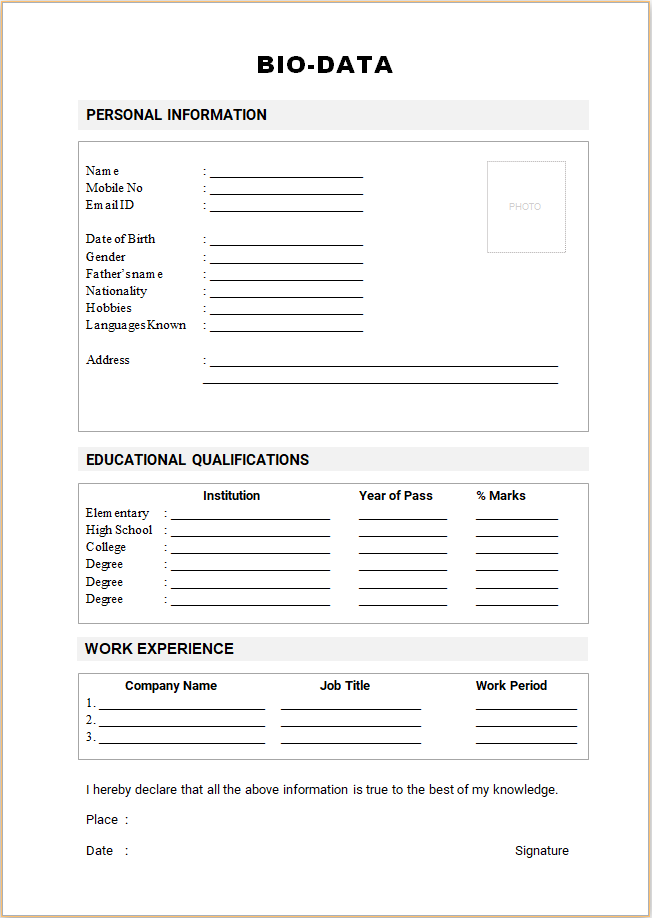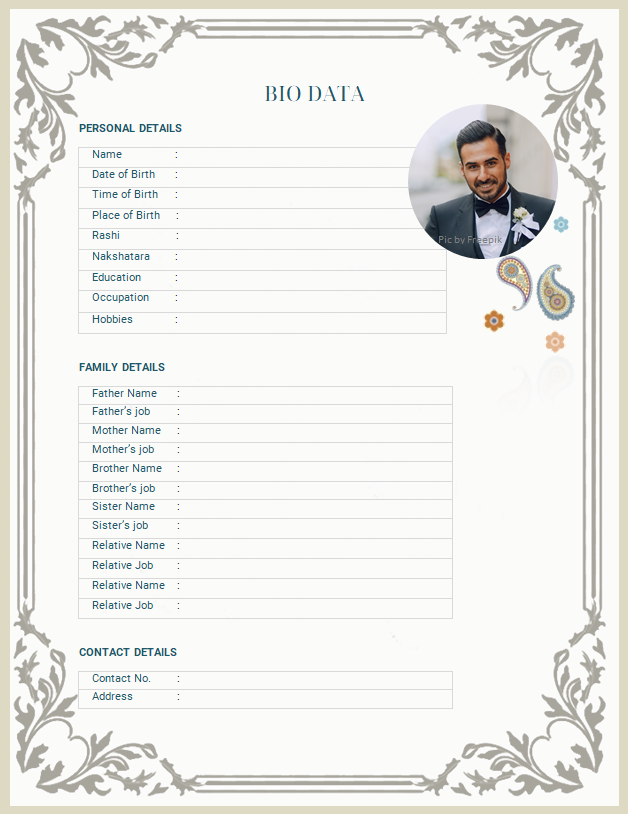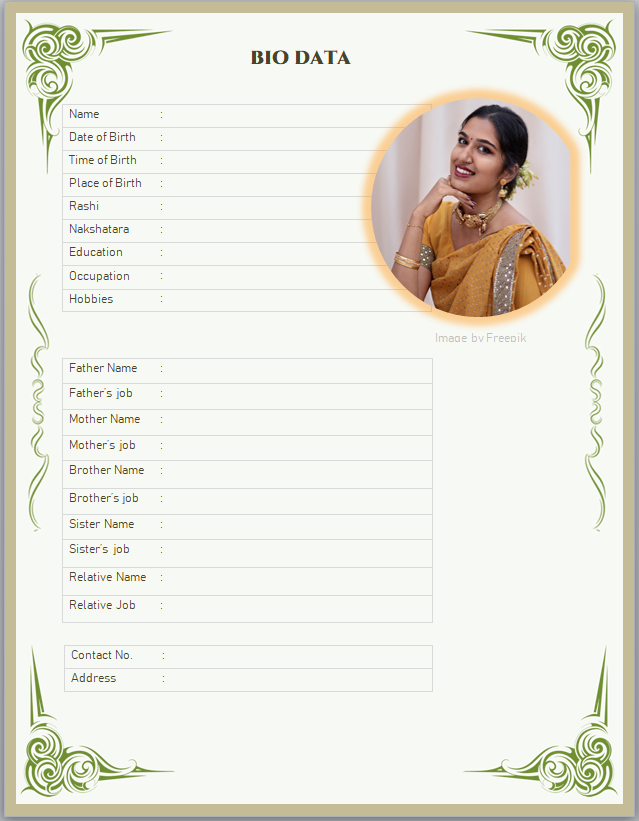Tabular Biodata format for job
Biodata format in MS word

Biodata format
Learn how to explain breaks in employment
Addressing gaps in employment in your biodata requires a thoughtful and transparent approach. Here are some tips on how to effectively communicate employment gaps:
1. Be Honest:
Transparency is crucial. Clearly state the periods during which you were not employed.
2. Use a Functional or Hybrid Resume Format:
Instead of a chronological format, consider using a functional or hybrid resume format. This allows you to highlight skills and accomplishments rather than focusing on the timeline.
3. Provide a Brief Explanation:
In a brief statement, address the reason for the gap. Whether it was for personal reasons, further education, or career transition, be honest but concise.
**Employment History**
*Previous Job Title, Company Name*
- Date Started – Date Ended
*Reason for Gap: Pursued Further Education*
- Took a year off to pursue a master's degree in [Field of Study].
*Next Job Title, Next Company*
- Date Started – Date Ended
4. Include Relevant Activities:
If you were involved in any freelance work, volunteer activities, or personal projects during the employment gap, include them in your biodata.
Example:
**Employment History**
*Previous Job Title, Company Name*
- Date Started – Date Ended
*Employment Gap: Pursued Further Education*
- Enrolled in a full-time master's program in [Field of Study].
- Conducted independent research on [Relevant Topic].
5. Highlight Transferable Skills:
Use the skills gained during the gap to your advantage. Showcase how these skills are transferable and relevant to the position you are applying for.
6. Address in the Cover Letter:
If the employment gap requires more context, you can elaborate on it in your cover letter. This provides an opportunity to explain in more detail while keeping your biodata concise.
7. Show Continuous Learning:
If you took courses, attended workshops, or participated in any form of professional development during the gap, mention it to show your commitment to staying current in your field.
Example
**Professional Development**
*Relevant Coursework during Employment Gap*
- Completed online courses on [Subject] to stay updated with industry trends.
8. Focus on Achievements:
Emphasize your accomplishments in previous roles and how they make you a valuable candidate, steering the attention away from the gap.
By addressing employment gaps in a positive and honest manner, you can present yourself as a candidate who is proactive, adaptable, and continuously working towards professional growth.
Additional Inputs
How to address sabbaticals in biodata
Sabbatical Experience:
During my professional journey, I have strategically embraced sabbaticals as transformative periods of personal and career development. One such notable sabbatical was a [duration]-month break I took to pursue a passion project aimed at [brief description of the project]. This endeavor not only allowed me to contribute meaningfully to a cause I am deeply passionate about but also provided a unique opportunity to refine my project management and leadership skills. The lessons learned during this sabbatical have been invaluable, contributing to my holistic growth as a professional.
Professional Development during Sabbatical:
Recognizing the importance of continuous learning, I utilized my sabbatical to engage in targeted professional development activities. I enrolled in specialized courses such as [Course Name] to stay abreast of industry trends and emerging technologies. Additionally, I actively participated in relevant workshops and networking events, fostering connections with professionals who share my commitment to innovation and excellence. This intentional investment in my skill set not only enhanced my capabilities but also demonstrated my dedication to remaining a forward-thinking and adaptable contributor in the ever-evolving professional landscape.
Impact on Career Perspective:
Taking sabbaticals has significantly shaped my career perspective, reinforcing the belief that periodic breaks can be instrumental in fostering creativity, resilience, and a renewed sense of purpose. These experiences have equipped me with a broader worldview and a deepened understanding of the importance of work-life balance. As I return to the workforce, I bring with me not only enhanced skills and knowledge but also a refreshed enthusiasm and commitment to contribute meaningfully to dynamic and challenging professional environments.

